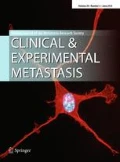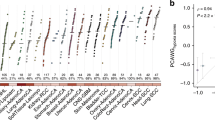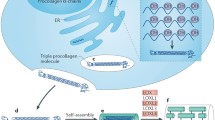Abstract
The microenvironment of solid tumours contains regions of poor oxygenation and high acidity. Growing evidence from clinical and experimental studies points to a fundamental role for hypoxia in metastatic progression. Prolonged hypoxia increases genomic instability, genomic heterogeneity, and may act as a selective pressure for tumour cell variants. Hypoxia can also act in an epigenetic fashion, altering the expression of genes. Hypoxia-induced changes in gene expression alter non-specific stress responses, anaerobic metabolism, angiogenesis, tissue remodeling, and cell–cell contacts. Experimental studies have demonstrated that inhibition of proteins involved in these processes can modify metastasis formation, suggesting a causal role in metastatic progression. Recent advances in high-throughput screening techniques have allowed identification of many hypoxia-induced genes that are involved in the processes associated with metastasis. Here we review the epigenetic control of gene expression by the hypoxic microenvironment and its potential contribution to metastatic progression.
Similar content being viewed by others
Author information
Authors and Affiliations
Corresponding author
Rights and permissions
About this article
Cite this article
Subarsky, P., Hill, R.P. The hypoxic tumour microenvironment and metastatic progression. Clin Exp Metastasis 20, 237–250 (2003). https://doi.org/10.1023/A:1022939318102
Issue Date:
DOI: https://doi.org/10.1023/A:1022939318102




